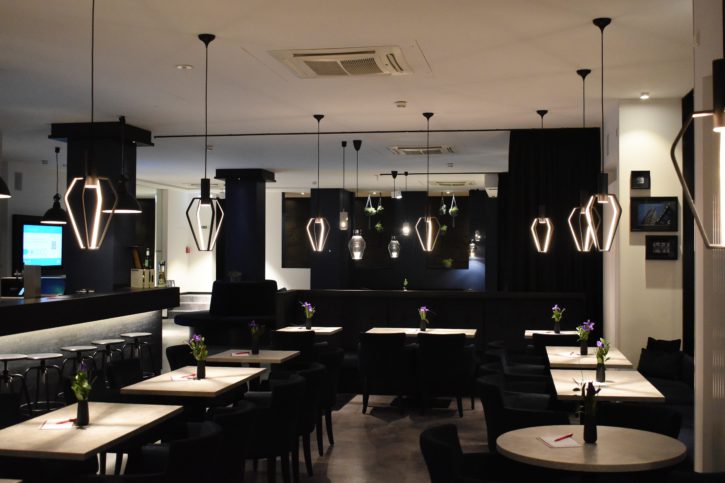Highest quality hygiene and cleaning chemicals

Restaurants are often clad with tiles because of their ease of cleaning and their nice aesthetic that is soft on the eyes. Other restaurants might have glossier tiles than others, which often poses problems to employee and guest safety. However, many don’t know that floors become slippery when they develop grease and gunk over time.
Flooring that has a layer of grease is often not solved by simply mopping over them with light cleaning products, as this might even spread it and make it thicker. The solution is often an all-purpose cleaner that can work as a kitchen degreaser to remove as much buildup as possible. In an environment that receives heavy foot traffic and even spills or stains, these can cause slippery floors over time. Here are five tips to solve the problem of a restaurant floor that develops a layer of grease:
Some restaurants make the mistake of using the same mop for the kitchen and the dining areas. While this saves time and storage space, this can often be counterproductive to cleaning your floors. Kitchen surfaces can often be dirtier and greasier because of how chefs deal with oily products and other spillages. When this gets into the mop, this will transfer the viscous materials to the dining area’s surface, making the floor slippery. The solution is to have two mops and indicate which is for each site to avoid cross-contaminating surfaces.
If you don’t run your mop heads through running water sufficiently, all the gunk and grease still stick onto the mop’s fabrics. The best way to go about this is to have various mop heads in the utility closet for staff to use and develop a schedule for washing each item. Using an all-purpose cleaner can help remove thick grease from mop fibres and make them ready for use each day.
Kitchen floors might need heavy-duty cleaning products to break up the heavy grease layer that has developed over months or years of neglect. Grease can cause slips that can lead to injuries, which is why running an all-purpose cleaner can help with emulsifying the built-up layer. Depending on your restaurant’s menu and ingredients list, you’ll need to do this more often than usual.
Mopping your restaurant floor or kitchen floor surfaces will require an all-purpose cleaner in the water used to soak the floors. Degreaser is specifically recommended for areas that need high slip-resistance, so ensure that the right products are used for each part of the restaurant. Slippery floors come from grease layers, making cleaning products help with safety for employees and customers.
Tiles can individually develop harsh stains and buildup, which means you’ll need to treat each tile well with the right cleaning products. Whether using a kitchen degreaser or something more abrasive, you can tell based on how stubborn the dirt is on the surface. If you’ve neglected your tiles for a long time, it is probably time to do a one-by-one cleaning job to ensure that everything is safe and sanitary.
Slippery floors are dangerous no matter where you go, and can even be more hazardous for customers who visit your restaurant. Any injuries sustained by your staff or visitors can be a costly endeavour to deal with, which will damage your reputation as a food provider. Ensure that you use the right cleaning products to deal with greasy floors that can be hazardous.
Reliance Chemicals is home to Australia’s best cleaning products for the hospitality industry. With over 15 years of experience in creating various chemical cleaners and detergents that are innovative and even safe for the environment, we are in it for the long haul. Contact us today to know more about our wide range of products and solutions for sanitation and cleanliness.

